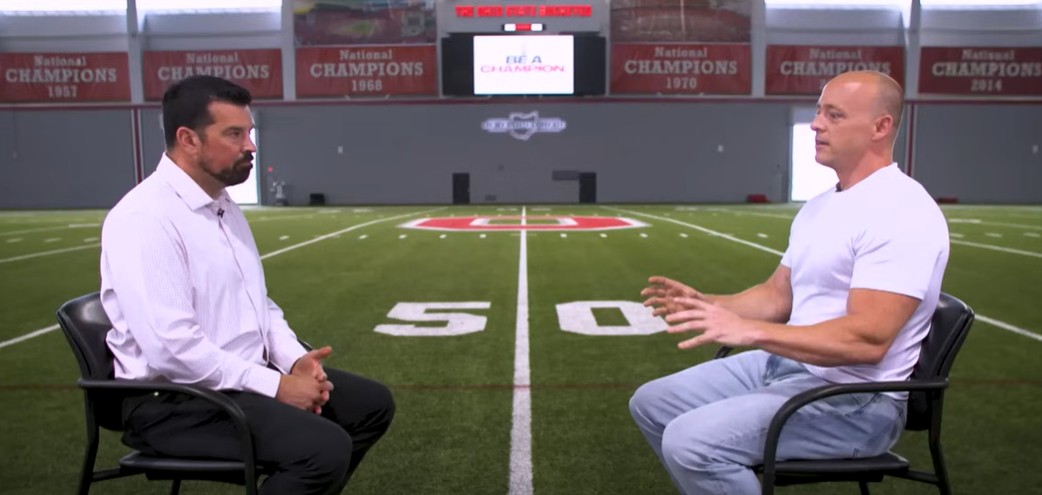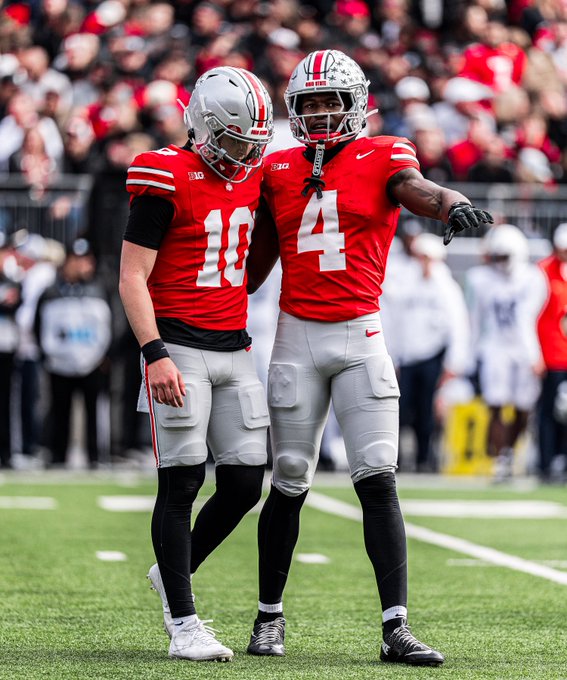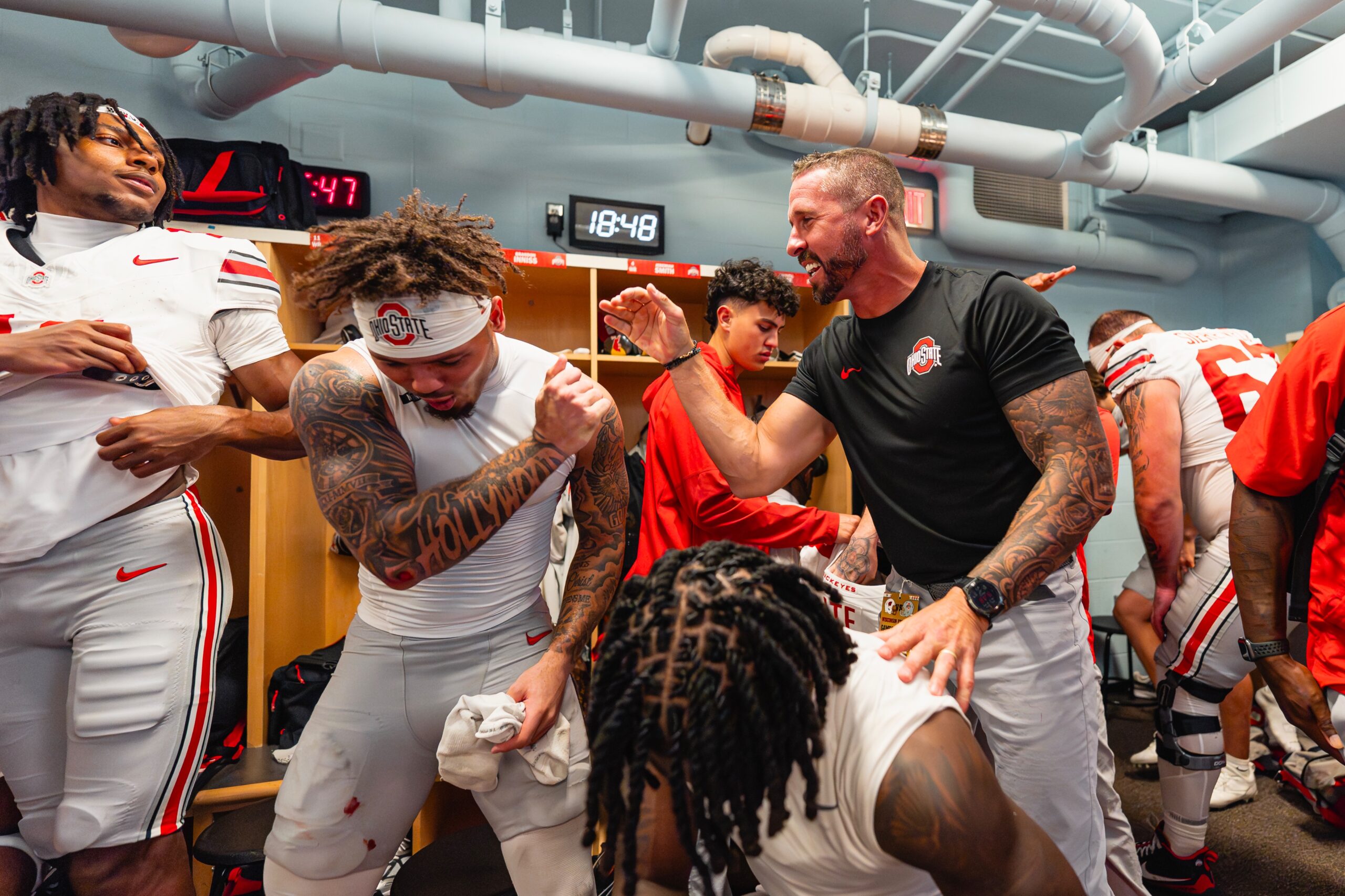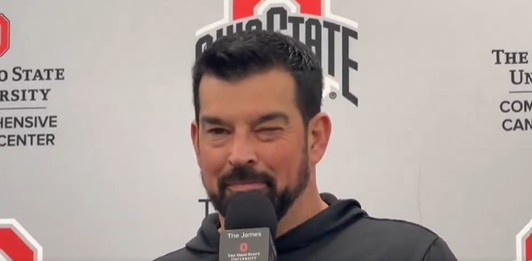
In the aftermath of heartbreak and high expectations, the 2024 Ohio State Buckeyes did more than just win a national title—they reclaimed their soul. For a fanbase accustomed to elite performances but haunted by recent shortcomings against Michigan, this season delivered catharsis, redemption, and proof that the scarlet and gray still define the pinnacle of college football.
Four straight losses in The Game had left Columbus reeling. The noise was deafening. Critics questioned Ryan Day’s leadership, the team’s identity, and even the foundation of the program. But from within the walls of the Woody Hayes Athletic Center, the Buckeyes turned inward—not to sulk, but to fight. Day didn’t just preach resilience—he made it the culture. From the first preseason brick laid to the final whistle of the championship game, every moment was earned, every step purposeful.
This wasn’t a fairytale turnaround. It was the culmination of months spent wrestling with adversity—injuries to key linemen, a scrutinized quarterback carousel, and the weight of unmet expectations. Chip Kelly’s addition as offensive coordinator sparked change, but not without turbulence. Ohio State had to learn, adapt, and most of all, trust.
Trust was forged in the fire of setbacks. When Tennessee loomed on the schedule, the Buckeyes didn’t flinch—they attacked. What followed was a statement game, an emotional outpouring of frustration, preparation, and raw determination. That win didn’t just put Ohio State back on track—it set a new tone. Day’s players weren’t arrogant. They were fed up. And it showed.
From there, they didn’t just win—they transformed. The semifinal against Oregon, a rematch laced with bad memories, offered a chance to close old wounds. Even without key players like Simmons and McLaughlin, the Buckeyes were clinical. The staff had made the right adjustments. The team had grown. Criticism hadn’t weakened them—it had sharpened them.
By the time the Rose Bowl arrived, this wasn’t a team hoping to win—it was one prepared to finish. A visit from a Navy SEAL during prep week became symbolic: precision, unity, and pressure-defined execution. When Oregon counterpunched, Ohio State leaned in. They didn’t break. They responded.

The championship itself wasn’t just a goal—it was a reckoning. Day made no excuses. If they lost, everything that came before would fade into footnotes. That urgency bled into every rep, every meeting, every moment. The Buckeyes were not going to be remembered as almost-great. They were going to be remembered as champions. And they were.
But what came after was just as important. Ryan Day didn’t bask in the win. Instead, he used it as a foundation for more. The offseason wasn’t about parades—it was about progress. Chip Kelly’s departure opened the door for Brian Hartline to step into the OC role, a move Day believes is both natural and overdue. On defense, the arrival of Matt Patricia added gravitas to a staff already teeming with experience and promise.
Day knows the truth—every year is its own beast. Complacency kills. So does entitlement. That’s why, when spring began, players asked for reminders of the 2024 title to be taken down. “We didn’t win that,” they said. That humility speaks volumes. This isn’t a program riding a wave. It’s a team ready to start the climb again.

Culture remains the engine. Whether it’s a future NFL star or a five-star freshman, Day makes it clear: nothing is given. Everything is taught. Everything is earned. And in a world where coaches come and go, where the pressure to win is relentless, Day is building something lasting—something that doesn’t just aim for titles, but produces leaders on and off the field.
For Buckeye fans, this isn’t just about 2024. It’s about what it proves—that Ohio State can weather storms, rise from losses, and still hold the standard. That in Ryan Day, the Buckeyes have more than just a coach—they have a steward of culture, of legacy, of excellence.
This team didn’t just win a championship. They built something. And they’re not done.











